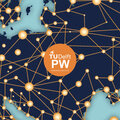Book Launch with Dr. Adam Henschke (University of Twente)
Book Launch with Dr. Adam Henschke (University of Twente) Intelligence, Surveillance, and Cognitive Warfare: An Ethical Perspective 25 september 2024 00:00 - Locatie: TU Delft | Campus The Hague | Zet in mijn agenda Registration page The Hague Centre for Strategic Studies , TU Delft Safety & Security Institute and The Delft Digital Ethics Centre are pleased to host the launch of 'Ethics of National Security Intelligence Institutions‘ and 'Cognitive Warfare: Grey Matters In The Ethics Of Information Conflict.' together with the author Dr. Adam Henschke , Assistant Professor at the Philosophy Section of the University of Twente. The ethical tensions of intelligence practices and institutions are notoriously difficult to address given their opacity, exceptional conditions, and distinctness from open conflict. Additionally, developments in technologies like AI, biometrics, and encryption change how intelligence can be done. Henschke’s new books address not only the ethics of intelligence and information operations, but the institutions that conduct them, the technologies they use, and the other actors they interact with. Further, Henschke argues that without norms for these ethically exceptional activities, liberal democracies risk sliding into the abuses of unrestrained authoritarian states. Intelligence and information warfare are among the most opaque of state activities, often shrouded in secrecy and concealed from both policy makers and the public. Philosophically, to treat these institutions and practices as the subject of ethical scrutiny invites skepticism on its own. Some even describe intelligence ethics as an oxymoron, as though it is so exceptional as to be exempt. Meanwhile, theorists struggle to translate ethical concepts traditionally at home in the grey area of intelligence and information operations which fall outside both diplomacy and open conflict. Handling these challenges, Henschke shows how a practice can be both exceptional to standard ethical norms but not exempt. Henschke not only anticipates the authoritarian risks of intelligence and information operations, but gives an aspirational vision of how intelligence institutions should function. Henschke proposes a teleological and institutionally relative account, which centers the purposes of specific institutions, their goals, the roles of practitioners, and the specific tools they use. About the author Dr. Adam Henschke Dr. Adam Henschke is an Assistant Professor with the Philosophy Section at the University of Twente. He is an applied ethicist, working at the intersection of ethics, technology, and national security policy. His recent work has looked at ethical issues with intelligence institutions, and with the ethical and political concepts relating to cognitive warfare. He has written extensively on the ethics of military conflict, cybersecurity, terrorism/counter-terrorism, surveillance, human military enhancement, cyber-physical systems, and medical ethics. His current research concerns the ethical and political challenges facing liberal democracies when they seek to protect against cognitive warfare and the problem of ‘brainwashing’. The ethics of National Security Intelligence Institutions The book ' Ethics of National Security Intelligence Institutions ‘ explores the ethics of national security intelligence institutions operating in contemporary liberal democracies. Intelligence collection by agencies such as the CIA, MI6, and Mossad involves practices that are apparently inconsistent with the principles of ordinary morality – practices such as lying, spying, manipulation, and covert action. However, in the defence of national security, such practices may not only be morally permissible, but may also under some circumstances be morally obligatory. One approach to the ethics of national security intelligence activity has been to draw from the just war tradition (so-called ‘just intelligence theory’). This book identifies significant limitations of this approach and offers a new, institutionally based, teleological normative framework. In doing so, it revises some familiar principles designed for application to kinetic wars, such as necessity and proportionality, and invokes some additional ones, such as reciprocity and trust. It goes on to explore the applications of this framework and a revised set of principles for national security intelligence institutions and practices in contemporary and emerging political and technological settings. This book will be of much interest to students of intelligence studies, ethics, security studies and International Relations. More info Cognitive Warfare: Grey Matters In The Ethics Of Information Conflict The book ' Cognitive Warfare: Grey Matters In The Ethics Of Information Conflict ' explores the conceptual, historical, and ethical issues of information conflict to present a detailed analysis of cognitive warfare. Is it possible for liberal democracies to deliberately use information on civilian populations to impact political and social institutions? While information conflict has been a part of political conflict, warfare, and international relations for as long as there has been political competition, given that our modern political and social lives are saturate. More info dr. Adam Henschke Assistant Professor in Philosophy & Research Director – TU Twente Jeroen van den Hoven Professor of Ethics and Technology – TU Delft Nick Johnston PhD candidate – TU Delft Sofia Romansky Strategic Analyst – The Hague Centre for Strategic Studies (HCSS) Programme Registration Registration page







